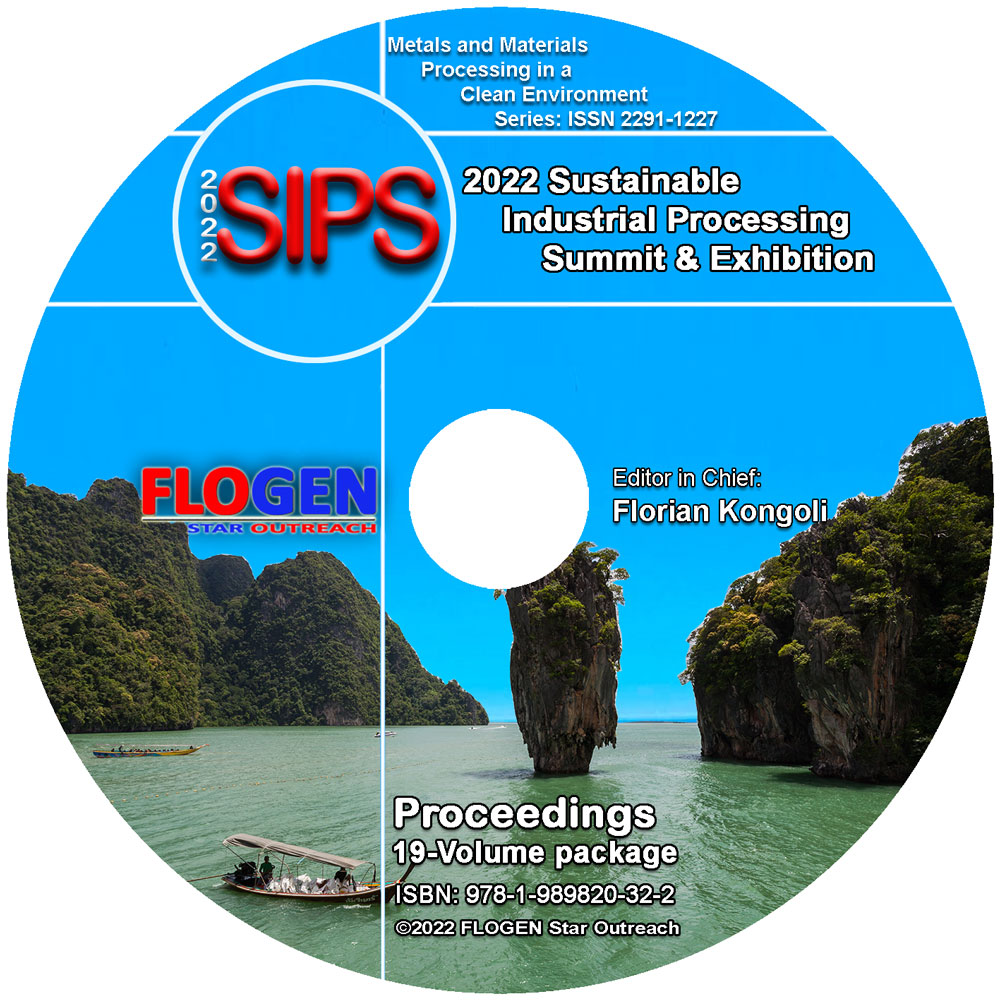2022-Sustainable Industrial Processing Summit
SIPS2022 Volume 4 Kipouros Intl. Symp. Molten Salt, Ionic & Glass-forming Liquids & Powdered Materials
| Editors: | F. Kongoli, R. Fehrmann, V. Papangelakis, I.Paspaliaris, G. Saevarsdottir. |
| Publisher: | Flogen Star OUTREACH |
| Publication Year: | 2022 |
| Pages: | 100 pages |
| ISBN: | 978-1-989820-40-7(CD) |
| ISSN: | 2291-1227 (Metals and Materials Processing in a Clean Environment Series) |

CD shopping page
SELECTIVE EVAPORATION of MULTICOMPONENT MOLTEN MIXTURES BASED on LiCl-KCl EUTECTIC
Alexander Salyulev1; Alexei Potapov1; Nikolay Moskalenko1; Vladimir Shishkin1;1INSTITUTE OF HIGH TEMPERATURE ELECTROCHEMISTRY, Ekaterinburg, Russian Federation;
Type of Paper: Regular
Id Paper: 234
Topic: 13
Abstract:
Currently, in a number of countries, various options for pyrochemical (using molten salts) technologies are being developed. These technologies would ensure efficient disposal of spent nuclear fuel, reduction of radioactive waste, extraction of uranium, plutonium and electrolyte purification for the repeater usage in reactors [1]. In order to assess the possibility of selective evaporation of various components of salt electrolytes, in this work, experimental distillation of chlorides from their molten mixtures under various conditions was carried out. In all cases, CsCl, BaCl2, SrCl2, NdCl3 (1-2 mol%) dilute solutions, as representatives of alkali, alkaline earth and rare earth metal chlorides solutions in the molten eutectic LiCl - KCl mixture, were subjected to evaporation at the reduced (up to ~ 1 Pa) pressures and temperatures of 753-1033 °C. The compositions of sublimates and molten salts before and after the distillation were analyzed.
It was found that in all cases alkali metal chlorides were the main components of vapor condensates, the content of alkali- and rare earth elements or uranium in sublimates was negligible. The distillation rate of salts with continuous evacuation of vapors was many times higher than during evaporation in sealed devices and sealed ampoules [2]. Conclusions about the degree of distillation, the selectivity of evaporation of the components of molten mixtures, and the relative volatility of various chlorides are made. The found dependences can be useful for the development of promising schemes for SNF reprocessing using salt distillation.
Keywords:
Chloride; Lithium; Mixtures; Moltensalt; Neodymium;References:
REFERENCES:[1] E.-Y. Choi, S.M. Jeong, Progress in Natur. Science: Materials International. 25 (2015) 572-582.
[2] A.B. Salyulev, N.I. Moskalenko, V.Yu. Shishkin, Yu.P. Zaikov, Rasplavy (Melts) 4 (2020) 363-374 (in Russian).